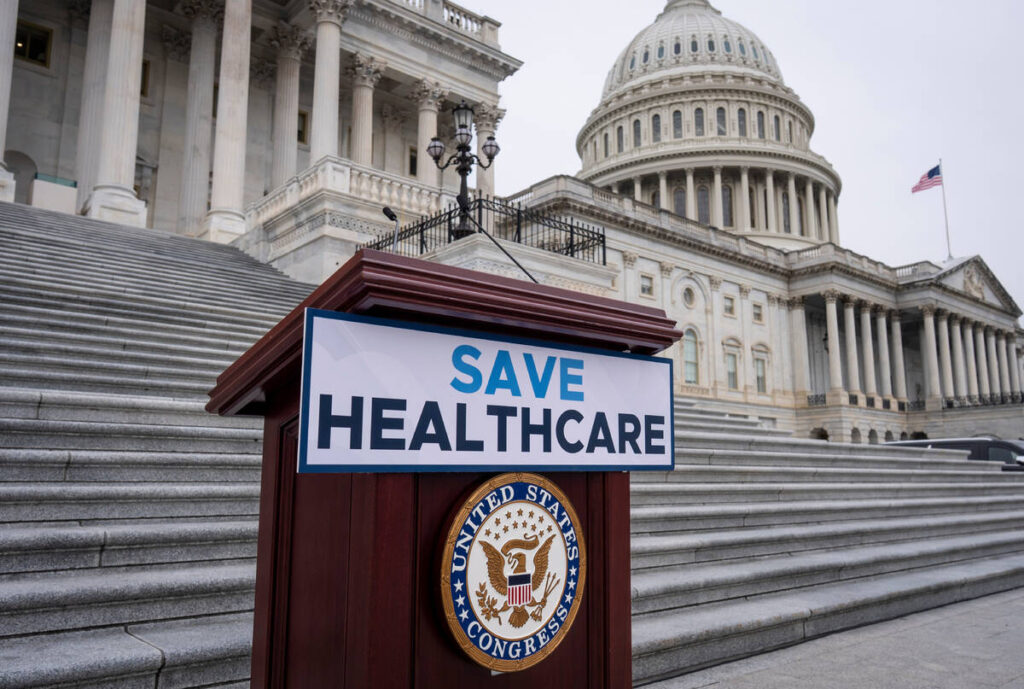Health insurance spikes for millions are at the heart of the government shutdown
Summary
The U.S. government entered a shutdown after Democrats insisted that funding negotiations immediately address expiring Affordable Care Act (ACA) tax credits and Medicaid cuts, while many Republicans said funding should be restored first and health-care talks come later. The subsidies, expanded during the pandemic and extended in 2021 and 2022, are due to expire at the end of 2025. Analysts at KFF warn that premiums for subsidised enrollees would more than double next year if Congress does not act — an estimated 114% rise, or around an average of $1,016 in annual premiums.
The dispute also centres on deep Medicaid reductions included in the Republican tax-and-spending package passed this summer. That legislation would impose work requirements and shift costs to states, and the Congressional Budget Office projects roughly 10 million more people could become uninsured over the next decade because of those and other changes.
Key Points
- The immediate trigger for the shutdown is a standoff over extending ACA tax credits that make insurance affordable for millions.
- KFF analysis says expiration of the expanded subsidies would raise average annual premiums by about 114% (roughly $1,016) for subsidised enrollees in 2026.
- Record enrolment — about 24 million people — has been driven in large part by the expanded subsidies put in place since the pandemic.
- Republicans’ recent tax-and-spending bill includes more than $1 trillion in cuts to Medicaid and food assistance over a decade; the CBO warns this could increase the uninsured by about 10 million people.
- Democrats demand an immediate extension and reversal of Medicaid cuts in any funding bill; many Republicans prefer a short-term funding measure first and negotiations on health care afterwards.
Context and Relevance
Millions who rely on ACA subsidies or Medicaid face steep cost increases or coverage loss unless Congress acts. States are already reacting to the threat of reduced federal support by trimming Medicaid provider payments, which can affect access to care locally. The fight highlights larger trends: post-pandemic expansions of social programmes, partisan battles over federal spending, and how legislative timing can translate quickly into financial pain for ordinary people. The dispute also has electoral and budgetary implications ahead of upcoming cycles, and it may shape state decisions on Medicaid administration and health-provider reimbursements.
Author style
Punchy — this is not a dry budget spat. If you care about rising household costs, access to primary care and hospitals, or the political fights that decide who pays for health care, the mechanics detailed here matter. Read the detail if your insurance, a family member or your local health services could be affected.
Why should I read this?
Short version: if you or anyone you know gets insurance through the ACA or depends on Medicaid, this could hit your wallet hard — and fast. Premium notices are already going out and states are prepping cuts. This story explains who stands to lose, what the numbers look like (yes, massive increases), and how a shutdown is being used as leverage in the talks. Worth five minutes — unless you don’t like surprise bills.
